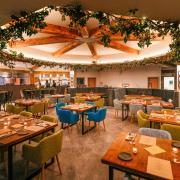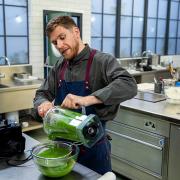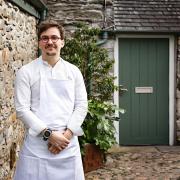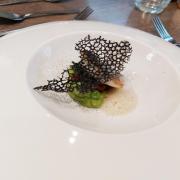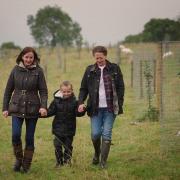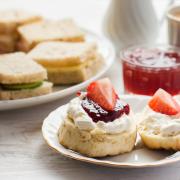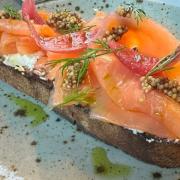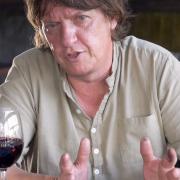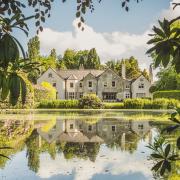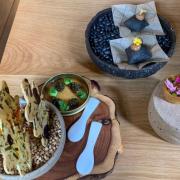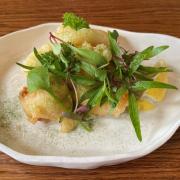If people knew how simple is was to make their own bread they'd never settle for shop bought, says Ana Jones.
If you’ve been taught to cook by following recipes and weighing and measuring ingredients, then Ana Jones’ bread making courses will come as a revelation. She believes in relaxed bread making, a handful of this, a pinch of that and a little light kneading.
‘If only people knew how easy it is to make bread then lots more people would do it,’ she says. She thinks a television programme should be made showing people how simple it is. Not that she wants to appear on it, she prefers to spread the word in her farmhouse kitchen where she runs her monthly cookery classes.
Her courses are relaxed, friendly and slightly chaotic, with everyone pitching in and washing up. Then, at the end of our first baking day we discovered we had ‘lost’ one of the loaves. A ten-minute search resulted in it being discovered in the back of the oven.
Her classes are held at The Watermill at Low Salkeld, near Penrith. Ana and husband Nick bought it in 1974 and over the years they have brought the 18th Century watermill back to life creating a range of stoneground biodynamic flours, award winning café, food shop and cookery courses which attract people from all over the country.
All of the courses use organic flour made from grains sourced in Kent and Leicestershire and ground at the mill. Ana is a great proponent of natural ingredients. ‘I like the taste of wheat which is sweet,’ she says, before chiding us for wanting to add salt to our bread. The course looks at different types of grains, gluten, flour labelling, cooking utensils and includes lots of practical bread making and a trip around the watermill to see the flour being ground.
Ana believes in making bread by hand although she’s happy to take questions about bread makers and gives us a leaflet at the end of the first day outlining what flours work best in them and a few hints and tips. It also includes a bread recipe although she really doesn’t believe in such things.
‘Recipes do not know how dry your wheat is,’ she says. ‘Those of you who have made “bricks” should have added in more water,’ she tells the 12 of us, many of whom said they were attending the class because their bread was too heavy.
‘The more you put in your bread the harder the yeast has to work,’ she adds. And then she reveals how to make a ‘sponge’ which everyone agrees will change they way they make bread in the future. It is simply a mix of flour, water and yeast which ferments for a day or two before adding flour to make it into a dough. As easy as that and all of our loaves come out perfectly.
On the first day we all baked loaves and buns and then watched as 64-year-old Ana created a cheese and onion bread which we ate with soup in the café, before coffee and cake. The Victoria sponge in the café is made with 85 per cent flour (minus the bran, but everything left in) and it was incredibly light.
That’s one of Ana’s missions in 2013, to persuade people who make or eat brown bread to use wholemeal flour in cakes as well. ‘People gain in confidence from learning to make bread and it’s lovely to see everyone going home with their really nice bread. I hope that those I teach then teach their friends and families and it goes on like a pool!’
You can attend either one or two day bread making courses at Low Salkeld. On both days you take away what you’ve made and the second day is geared to exactly what people want to learn. At my session people were interested in sourdough so we talked about sourdough starters before making bread. In fact we made lots and lots of bread, buns, cheese and onion loaves, spelt bread, ‘no knead bread’, tear n’ share rolls ….so much bread that we couldn’t carry home all that we had made.
The relaxed atmosphere in the tiny kitchen perhaps adds to Ana’s bread making ethos. Her message is very simple: ‘Be more relaxed, you can’t get it wrong….but people often make it too dry.’ And those two sentiments sum up the two days – with lots more information, stories, great food and plenty of laughter thrown in.
For more information about Anna’s courses in 2013 go to www.organicmill.co.uk. You can also find out about courses around the country at the Campaign for Real Bread website - www.sustainweb.org




